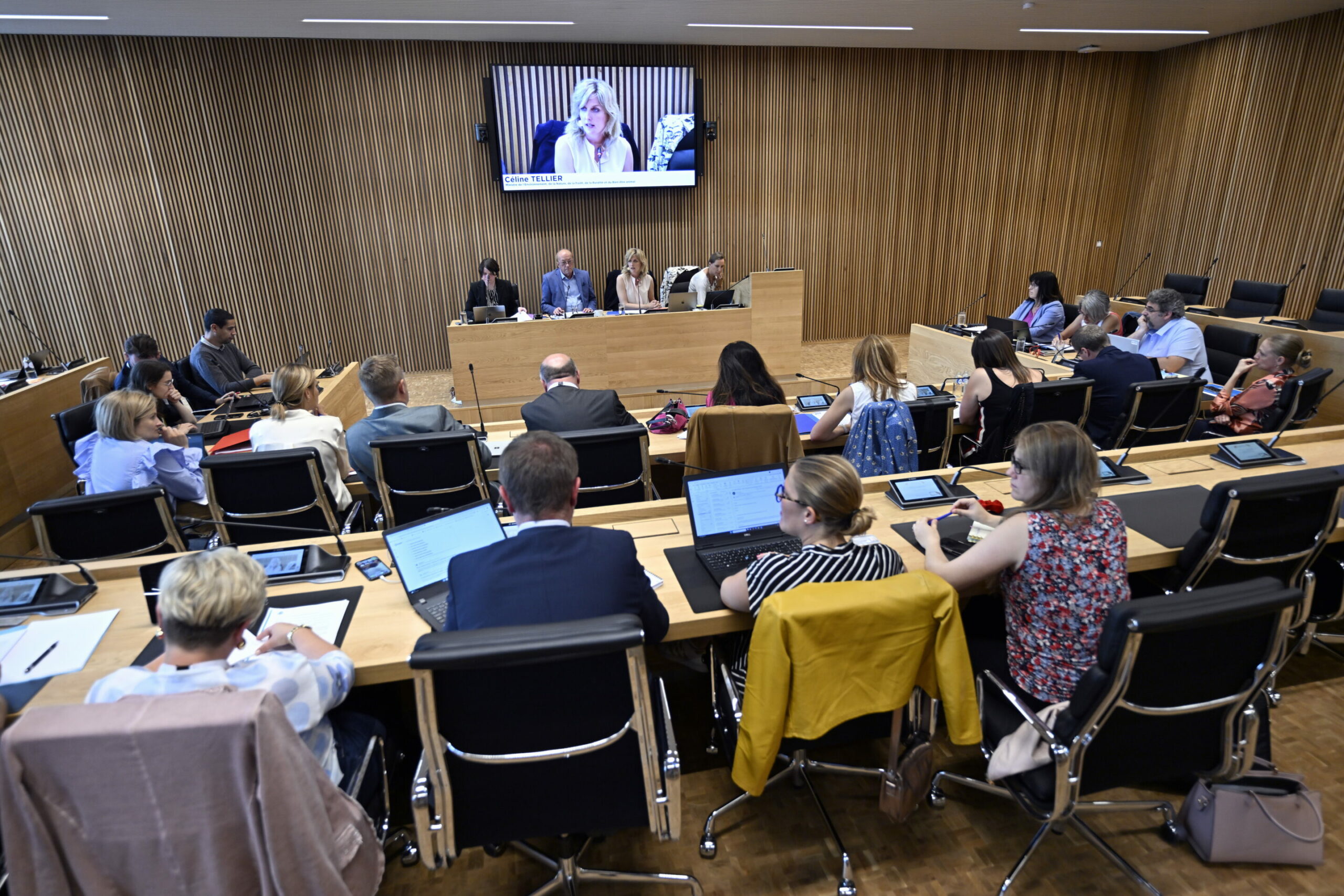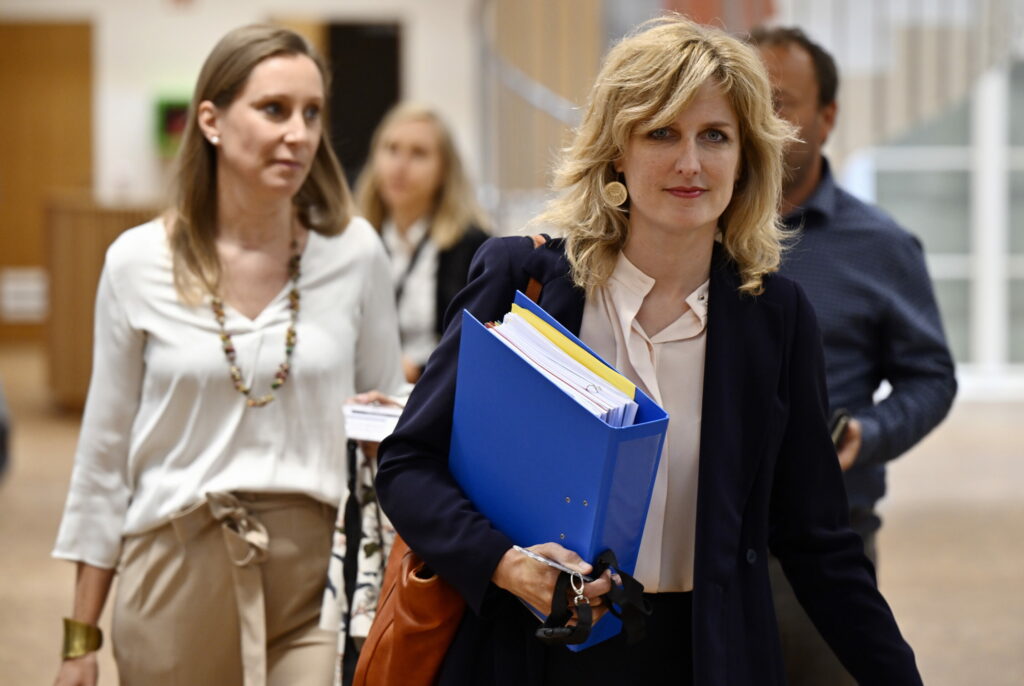Outgoing Walloon Environment Minister Céline Tellier (Ecolo) has proposed an inter-federal "master" plan to tackle forever chemicals "at the source" – but political opponents have pushed back as Wallonia is still in "crisis management" mode.
The French-speaking region has been embroiled in scandal since last November, when RTBF revealed that drinking water in several regions contained high levels of polyfluoroalkyl substances (PFAS), known as "forever chemicals" because they do not break down in the environment.
Tellier appeared before the commission again on Monday following the publication of PFAS results last week. The study showed that over 28% of affected residents have high PFAS levels in their bloodstreams and were advised to seek medical help. The complex manner in which the results were conveyed – as well as the time it took to share them – have attracted yet more criticism.
Tellier's conduct on Monday has been described as "heated" and "angry" by various Belgian media outlets. "The political game seems to dictate that I will again be answering your questions even though our exchanges about the PFAS dossier have been abundant and regular," she told the Commission.
"Some will continue to view the PFAS dossier through the narrowest of lenses, seeking to accuse, torpedo and perhaps even crucify an individual who has become a political adversary. But beyond my personal and ministerial responsibility, our responsibility is a collective one, and a major one!"

The session of the Environment Commission at the Walloon Parliament, in Namur, Monday 01 July 2024. Credit: Belga / Eric Lalmand
'Eradicate PFAS at the source'
Tellier's inter-federal plan would involve federal health and environment ministers as well as the European Union. Wallonia bases its PFAS regulation on that of France's (which is considered relaxed) and is 1,250 times less severe than its Flemish counterpart. There is currently no EU-wide ban on PFAS although the lobby for such legislation is gathering pace.
"The only way to end exposure to these pollutants is to stem their spread at source, by removing PFAS from chemical substances authorised on European soil." said Tellier. "Our chemical industry must reinvent itself, and our role is to lead it to do so."
Speaking at the same hearing, head of the Independent Science Council (CSI) Corinne Charlier set out to dispel some of the criticism the governmental response to the crisis has garnered. Charlier explained that the biomonitoring took place over six months as opposed to similar initiatives taking two years in the past. "Honestly, it was hard to do it any faster," she said.

High levels of PFAS were discovered in Walloon drinking water in November 2023. Credit: Belga
Several MPs have also denounced the vague advice provided to those with high PFAS levels. In response, Charlier explained that the toxicity is "chronic and long-term" rather than "acute" and so does not require emergency measures.
Other political opponents are not enthusiastic about Tellier's inter-federal "master" plan. "A master plan is interesting, but we are still in crisis management mode, primarily in Chièvres and Ronquières," Mouvement Réformateur (MR) parliamentary leader Diana Nikolic told Belga News Agency.
There is consent, however, on the need to continue monitoring PFAS presence among residents of hotspot areas. In order to be truly effective this surveillance would need to take place over the course of five to ten years and falls under the responsibility of the newly elected Walloon government (Tellier's days as Environment Minister are numbered).
For now, the Commission will meet again on Wednesday. The CSI will conduct statistical analysis on citizens with high PFAS levels through surveying them about their lifestyles, diets and hobbies and attempt to identify the ways in which forever chemicals entered their systems.

